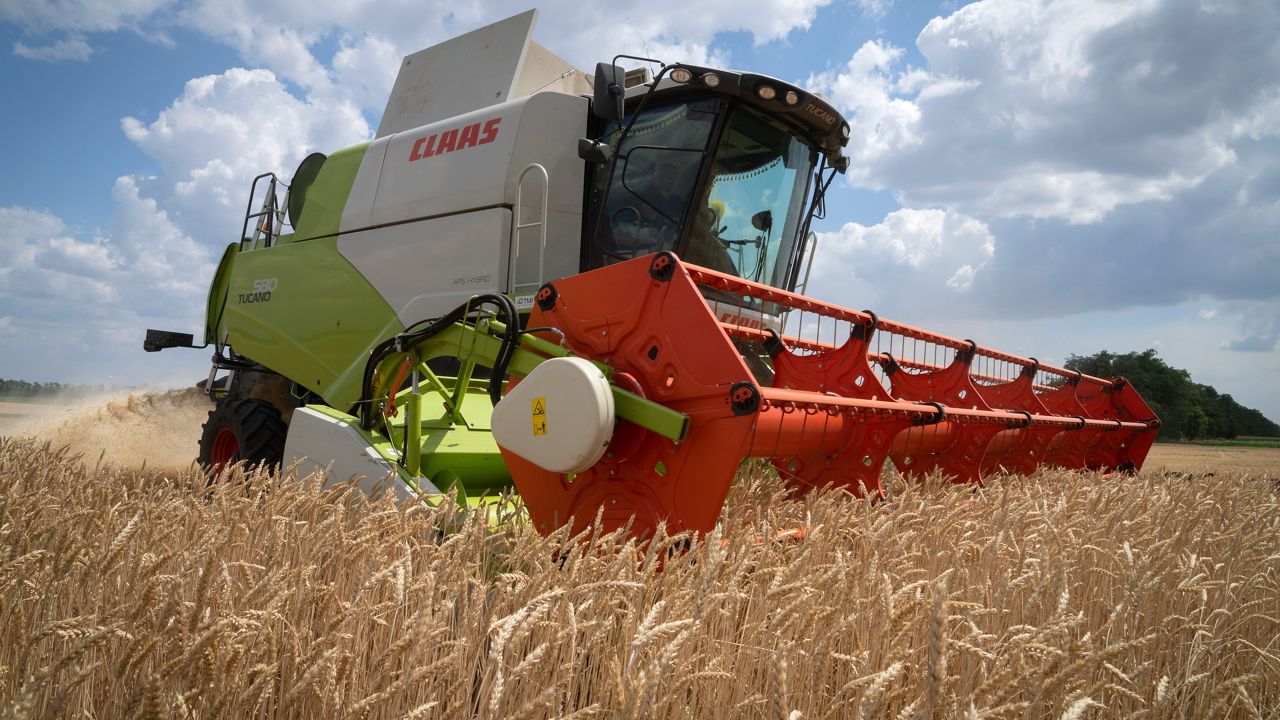The Ukrainian foreign minister says grain exports from his country’s ports won’t resume without security guarantees for ship owners, cargo owners and Ukraine as an independent nation.
Military officials from Russia and Ukraine held their governments’ first face-to-face talks in months Wednesday. They met in Istanbul to discuss a United Nations plan for getting blocked Ukrainian grain to world markets through the Black Sea.
Speaking to The Associated Press ahead of the talks, Ukrainian Foreign Minister Dmytro Kuleba said any agreement needs to ensure Russia “will respect these corridors, they will not sneak into the harbor and attack ports or that they will not attack ports from the air with their missiles.”
Kuleba also told the AP on Tuesday that Ukraine’s military is “planning and preparing for full liberation” of Russian-occupied cities and towns near the country’s Black Sea coast. Ukrainian forces already have stepped up their activity to retake territory in the south as Russia concentrates on eastern Ukraine.
Asked about the likelihood of negotiations to end the war that started when Russia invaded neighboring Ukraine on Feb. 24, the foreign minister said peace talks were unlikely to happen soon.
“Russia continues to be in the war mood, and they are not seeking negotiations in good faith. They are seeking a way to make us implement their ultimatums, which is not going to happen,“ said Kuleba, who because Ukrainian President Volodymyr Zelenskyy’s foreign minister in March 2020.
Moscow is attempting a de facto annexation of Kherson, Mariupol and other seized cities by introducing a Russian school curriculum, doing business in Russia’s currency and offering Ukrainians Russian passports, he said.
“I’m pretty confident that once these territories are liberated, the vast majority of people will burn their Russian passports quietly in their fireplaces,” Kuleba said.
In the meantime, Ukraine is insisting upon a full withdrawal of Russian forces as a condition for ending the conflict, he said.
“We are fighting for our freedom, for our territorial integrity, and we want peace. This war was imposed on us. This was not our choice,” Kuleba told the AP.
He stressed that while Ukraine appreciates the support it has received from the United States and European nations during the war, the country needs Western weapons deliveries to speed up as the fighting drags on into a fifth month.
“As long as there is not enough to win, we will keep asking for more,” Kuleba said. “You know, until you win, there are never enough weapons.”
Kuleba, 41, whose father was a career diplomat in Ukraine, previously served as the deputy prime minister in charge of the country’s efforts to forge closer ties with the European Union and NATO. He is the author of a 2019 book on disinformation titled “The War for Reality. How to Win in the World of Fakes, Truths and Communities.”
During Russia’s ground and air war in Ukraine, Kuleba has been second only to Zelenskyy in carrying their country’s message and needs to an international audience, whether through Twitter posts or meetings with friendly foreign officials.
His firmness in asking for more weapons from abroad and portraying Russia as an untrustworthy aggressor is mirrored in the public support for Ukraine’s determined resistance.
The foreign minister acknowledged that Ukraine suffered significant troop losses as the Kremlin concentrated its military offensive in the Donbas, an industrial region near the Russian border where Moscow’s forces have gradually gained ground.
Ukraine nevertheless has enough people willing to join the armed forces, he said.
“The only goal that we pursue in this war is our survival. When you are fighting for your survival, you have no choice. You have to fight,“ Kuleba said.
Ukraine’s top diplomat credited U.N. Secretary-General Antonio Guterres and the Turkish government for facilitating Wednesday’s talks on grain shipments. A Turkish delegation and U.N. representatives joined the discussion between Russian and Ukrainian military officials.
Zelenskyy has said a Russian naval blockade stranded about 22 million tons of grain inside Ukraine, a country known as the “breadbasket of Europe” for its exports of wheat, corn and sunflower oil.



